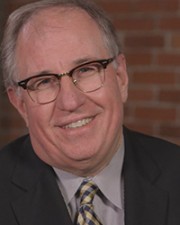
21st Century Corp.
Recently the Sunday New York Times offered an opinion piece titled “The Myth of Main Street”. The writer, Louis Hyman, spoke to the issue of “Main Street” and how as a subject it has become a political platform for elected officials that want to have people believe that a return to America of the 1950s is possible. I agree with Mr. Hyman, America has changed. But Main Street remains important.
Our downtowns, or “Main Streets”, are no longer the place where people go to shop for every day necessities. The family no longer piles into the Country Squire station wagon and heads to town on Friday night so dad can cash his check from the manufacturing plant and mom can buy Johnny and Susie new school shoes. Idyllic as that sounds, and as much as we want to think our Main Streets are something out of a Norman Rockwell painting, today we as a country and our Main Streets are much different.
Is Main Street dead? Not by a long shot. But like someone that has been doing the same job their whole life, it is time to do something different.
Today’s Main Streets are where people that have a dream can get started. Whether it be in a shared workspace in an old mill building, in an art gallery, or a coffee shop or restaurant where the shoe store used to be, or an artist studio in the space around the corner. That is not unlike what the WWII generation did, they opened hardware stores, clothing, sporting goods, sandwich shops and insurance agencies. Today’s start-ups are driven by young and older people alike, they are the creatives, they are mid and late career risk takers, they are retirees that want to chase that dream one last time, they are diverse and they are important to our social and cultural well-being.
Main Streets have often been referred to as the “living room” of a community. That it is. More importantly it is the soul of the community. It is where the people that live in and visit the city or town get to see other people, where they get to hear the local news, where they can enjoy the hard work of a local baker, pause to enjoy the creativity of an artist, stop and have a conversation with friends (social collisions), or to just get a feel about the community.
Main Street is where people can put their phones down and enjoy, as our friends from the south would say “a visit”, whether it is over lunch or in a nearby public park.
In the 1950s and 60s the local economies were truly local. The large department stores were still located mostly in cities and regional hubs, manufacturers were the larger local employers, and the grocer was local. We have changed.
We now are a commuter society. Some people want and need to live far from their jobs just to be able to afford housing. They give up hours of their lives riding trains, sitting on busses, or experiencing the loneliness of their car for miles at a time.
Because of that our town and city centers are even more important. Once home, people need to feel a sense of belonging, they need to be able to go someplace as they said on the old TV show Cheers “…where everybody knows your name.” That is what makes for healthy places.
So let’s not give up on downtowns, Main Streets or any other piece of American life just because politicians want us to accept their alternative reality. Rather let’s take a look at our Main Streets and look for the possibilities and encourage those brave enough to search out a dream, whether it is taking a risk on developing an old factory for housing, or someone new to this country that opens a small restaurant, or the person who spent most of his or her life thinking about opening their own business and now because of the access that the internet provides their market is limitless.
As economic developers, Realtors, bankers, community leaders, planners, developers, and investors we need to think of the possibilities and we must work to build great Main Streets in all our communities.
Michael Gallerani is the executive director of Brockton 21st Century Corp., Brockton, Mass.







